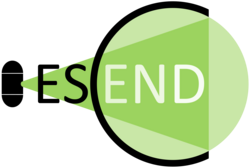Background
Esophageal cancer (EC) is the 8th most commonly diagnosed type of cancer worldwide, affecting more than 450,000 people, and the 6th leading cause of cancer-related death. Incidence rates are steeply rising due to the increasing prevalence of major risk factors, including obesity, chronic gastroesophageal reflux disease, and Barret’s esophagus (BE). Less than 20% 5-year survival rates are largely associated with the disease being detected late due to limitations in current diagnostic procedures. The current clinical-standard practice for early disease detection (i.e. surveillance endoscopy and random biopsies every 3-5 years) is sub-optimal and often misses dysplasia. Due to late detection, EC treatment 5-year costs may reach more than €130K per patient in Western countries. Conversely, detection and treatment of early-EC cancer is associated with very good prognosis (5-year survival rate of more than 90%) and treatment costs that are reduced to ~10% of the late-stage costs. For these reasons, early and accurate EC detection remains an unmet clinical need.
